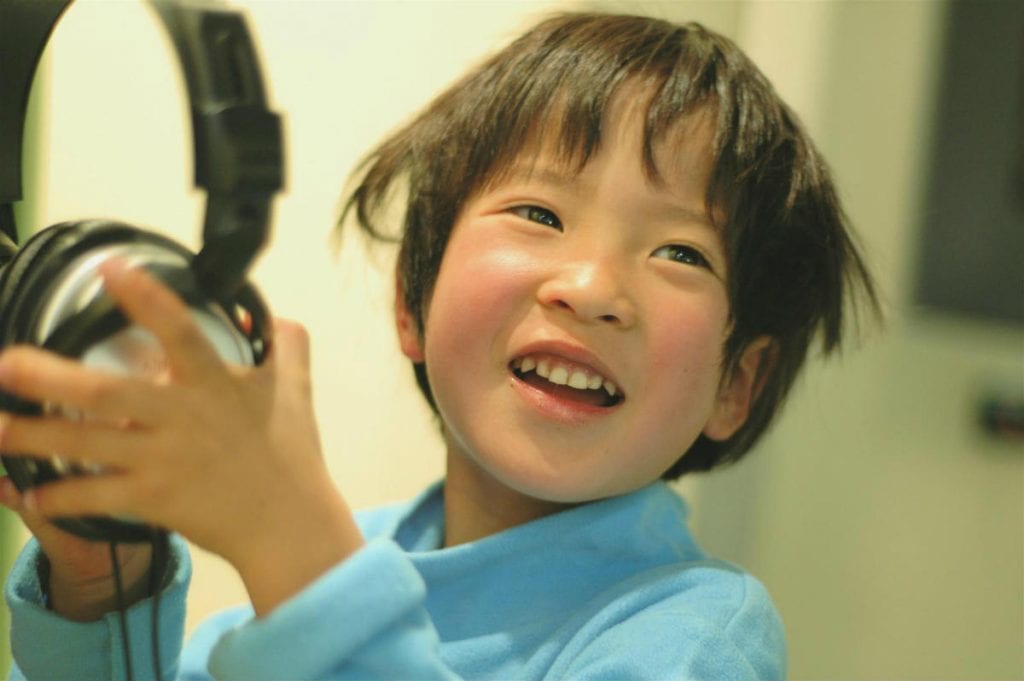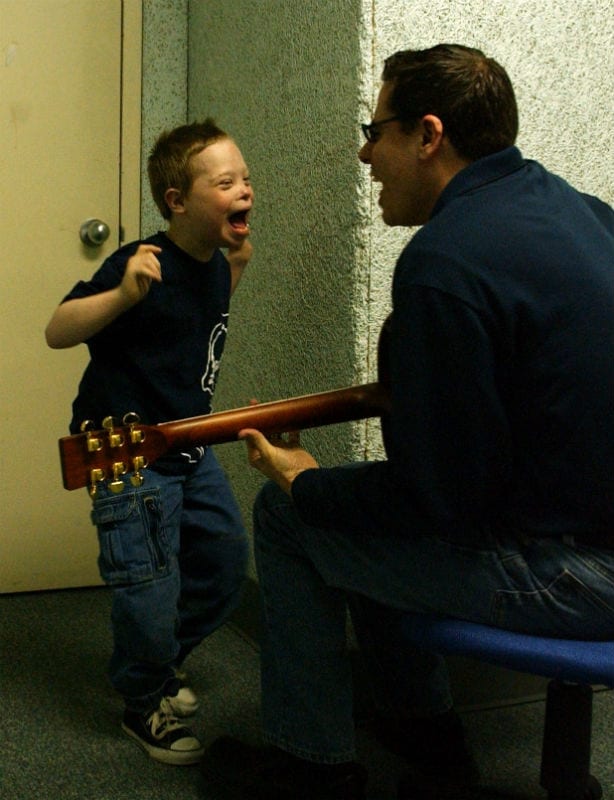Two-minute interview: Dr John Carpente, music therapist for children on the autism spectrum

Dr John Carpente is a world expert in music therapy for children on the autism spectrum. In advance of his 9 July seminar on Musical Play to Support Children on the Autism Spectrum to Express their Identity, he answers a few questions about his work.
By Susanna Ling
Hi John. What is music therapy, in a nutshell?
How the practice of music therapy is defined depends on the philosophical orientation of the music therapist you ask. For me, it’s an established evidence-based health profession that involves an interpersonal and inter-musical process between the client and therapist.
It’s based on co-active music experiences in which the therapist uses musical tools such as songwriting/composition, singing/playing familiar songs, improvising music, and music listening. The client uses instruments which require no prior skill while the therapist creates music on the piano, guitar, percussion, or via singing that engages, matches, supports and enhances the client’s playing in order to foster engagement, joint attention, relatedness and communication.
Through a vast range of musical experiences, they establish and develop a therapeutic relationship.
Your specialist area is musical play for children on the autism spectrum. How did you become interested in this field?
I’ve been a musician for as long as I can remember. Playing music with others has shaped how I view the world and how I find my place in it. To engage in music with others is a humbling experience like no other – it’s centred on beauty, creativity, relationships, unconditional acceptance, and expression.
As I see it, “musicking” is a vital human experience that can embody health. I wanted to explore how I could provide musical experiences in a clinical context for those who may have challenges in being able to experience music with others.

How can music therapy help children on the autism spectrum?
There’s no “one-size-fits-all” treatment for people with Autism Spectrum Disorder (ASD). The ways individuals are affected by ASD vary – some share common strengths and challenges, and some don’t.
People with ASD may experience challenges in relating and communicating with others, but this doesn’t mean they can’t. What we need to do is to create experiences that focus on the core features of ASD – social interaction, peer relationships, seeking to share enjoyment, social or emotional reciprocity, and the ability to initiate and sustain two-way dialogue with others.
Co-active musical-play experiences between a music therapist and a child can naturally embody all of these social-emotional dimensions.
In your career as a music therapist, are there particular cases that really stand out?
Over the course of 20 years, it’s been a privilege to make music and form relationships with all my clients and their families, but one case does stand out.
About three years ago, I was preparing to speak to prospective students and their parents at a Molloy College open house, where I am Associate Professor in Music Therapy. As the parents were walking into the room, I noticed a familiar face in the crowded hallway. She was the mother of a former client, J, with whom I’d worked for about six years. I started working with J when he was just five years old. Although she sent yearly holiday cards keeping me updated on his development, I hadn’t seen either of them for about six or seven years.
As I looked again I noticed J towering over her, with a huge smile on his face. As it turned out, they were there for the open house too, but for another department. J ended up studying at Molloy College and last year I attended his graduation. He received a bachelors degree in communication sciences with a minor in music. What a gift to be a small part of his journey!
What are the most rewarding aspects of your work?
What I love most about the work is the experience of making music with the clients. Those musical moments in which I connect with a child in music, and see the gleam in their eye, and experience the musical oneness with them through this co-creative process, is indescribable. I love it.
Dr John Carpente is Associate Professor of Music Therapy and Founding Director of the Center for Autism and Child Development at Molloy College, New York, and the Founder/Executive Director at The Rebecca Center for Music Therapy. He will present a seminar on Musical Play to Support Children on the Autism Spectrum to Express their Identity on Monday 9 July, 7pm at Federation Hall, Southbank campus. Book now.